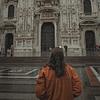Take a photo of a barcode or cover
Dense French philosophy regarding the desire to find meaning in a meaningless existence.
dark
reflective
reflective
slow-paced
The Myth of Sisyphus is about the purpose of life, how absurd it is and whether or not it is worth committing suicide. I think the main point of the novel is to live your life anyway despite the absurd and purposelessness of life and that you can create your own happines and purpose even if that purpose is of itself one of purposelessness
I really just didn't like it and it was OK in the beginning but then it just began to drag and was hard to finish reading because it was very boring for me. So far my least favorite from Camus.
I really just didn't like it and it was OK in the beginning but then it just began to drag and was hard to finish reading because it was very boring for me. So far my least favorite from Camus.
challenging
reflective
slow-paced
dark
mysterious
reflective
medium-paced
challenging
dark
hopeful
informative
inspiring
reflective
medium-paced
Changed my life.
Graphic: Suicidal thoughts, Suicide
Moderate: Death, Forced institutionalization, Medical content
Minor: Violence
challenging
slow-paced
deeply annoying to me personally
one must imagine sisyphos happy- sure, appreciating the moment and living it to the fullest in its simplicity and absurdity is beautiful, but this is such a limited analogy and the philosophy taken to its extreme, as it is here is just selfish, lonely and boring. there is more to life than impulse, the exact moment present now and death as the absolute enemy of things.
what i wanna work on is the opposite- living life, as if there were a tomorrow. realising myself as an existing entity, that is now, and will be tomorrow, and can build safe roots into the present that reach into the future for myself and the people i share life with and care for. with that objective albert and i just dont fit together at this time, but i see how it is appealing in a phase of finding oneself and looking for redirection . i was just so immensely annoyed by his black and white thinking.
one must imagine sisyphos happy- sure, appreciating the moment and living it to the fullest in its simplicity and absurdity is beautiful, but this is such a limited analogy and the philosophy taken to its extreme, as it is here is just selfish, lonely and boring. there is more to life than impulse, the exact moment present now and death as the absolute enemy of things.
what i wanna work on is the opposite- living life, as if there were a tomorrow. realising myself as an existing entity, that is now, and will be tomorrow, and can build safe roots into the present that reach into the future for myself and the people i share life with and care for. with that objective albert and i just dont fit together at this time, but i see how it is appealing in a phase of finding oneself and looking for redirection . i was just so immensely annoyed by his black and white thinking.
The only point is to live, the only destination death. No god, eternity, higher purpose, nor a “someday” to count on. But to encounter that during the conscious hour on the descent back to Sisyphus’ rock and in spite of that, live. Such is the lucid defiance against the absurd.
Still, I wonder. I wonder if the tragic albeit lucid happiness of Camus’ absurd hero is implicitly privileged. After all, pondering the meaning of life, confronting the indifference of this universe, and consciously choosing to embrace the unbearable weight of a radical freedom — isn’t that in itself a luxury? For the ordinary, those consumed by hunger, oppression, simply surviving, the pursuit of such a rebellious happiness is surely out of reach. Tragically, illusion remains the human refuge, and perhaps we ought to let man cling to something sometimes.
For now, I only know the happiness of finally finishing a book left half-read for well over a year. Maybe Camus, in quoting Nietzsche, is right— it’s these minute moments, art, this book, and the finishing of it, that makes it worth the trouble of living in this earth.






